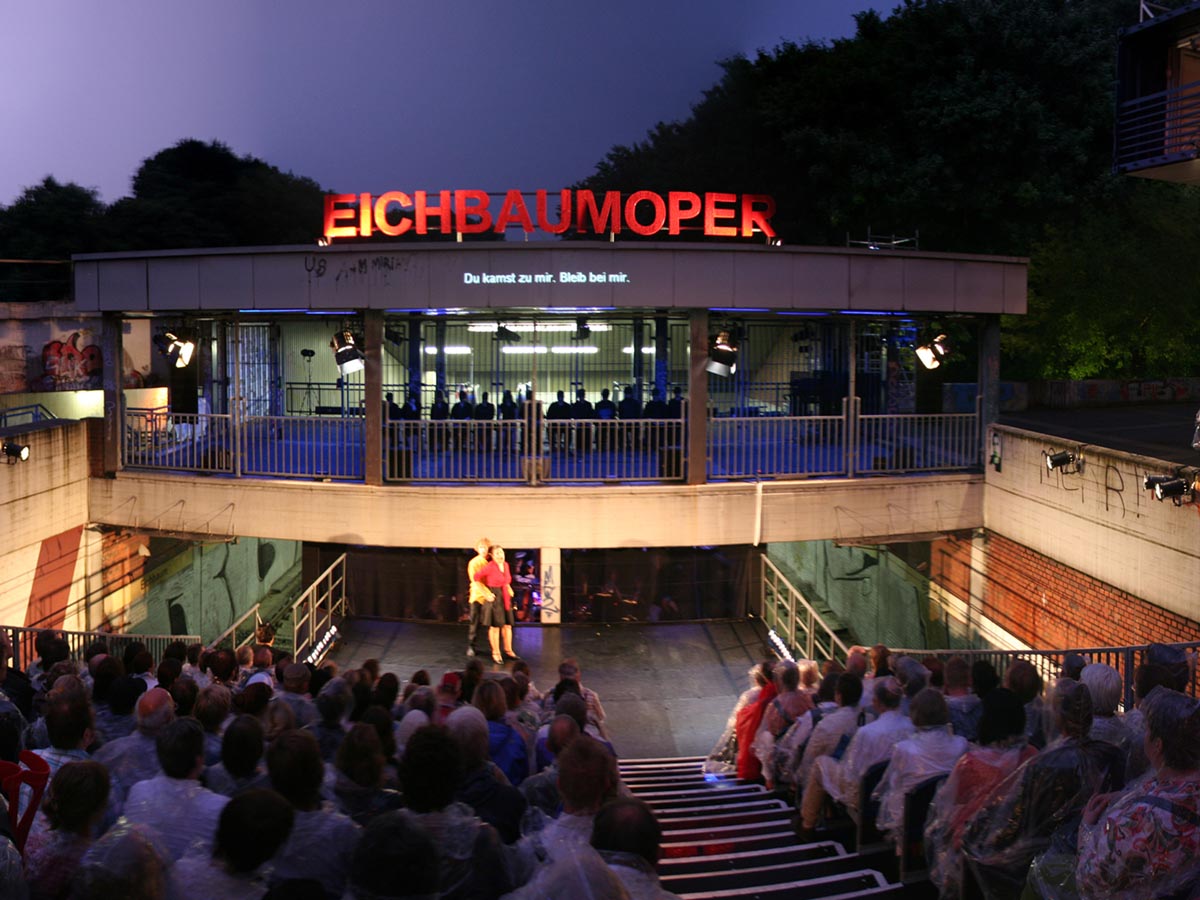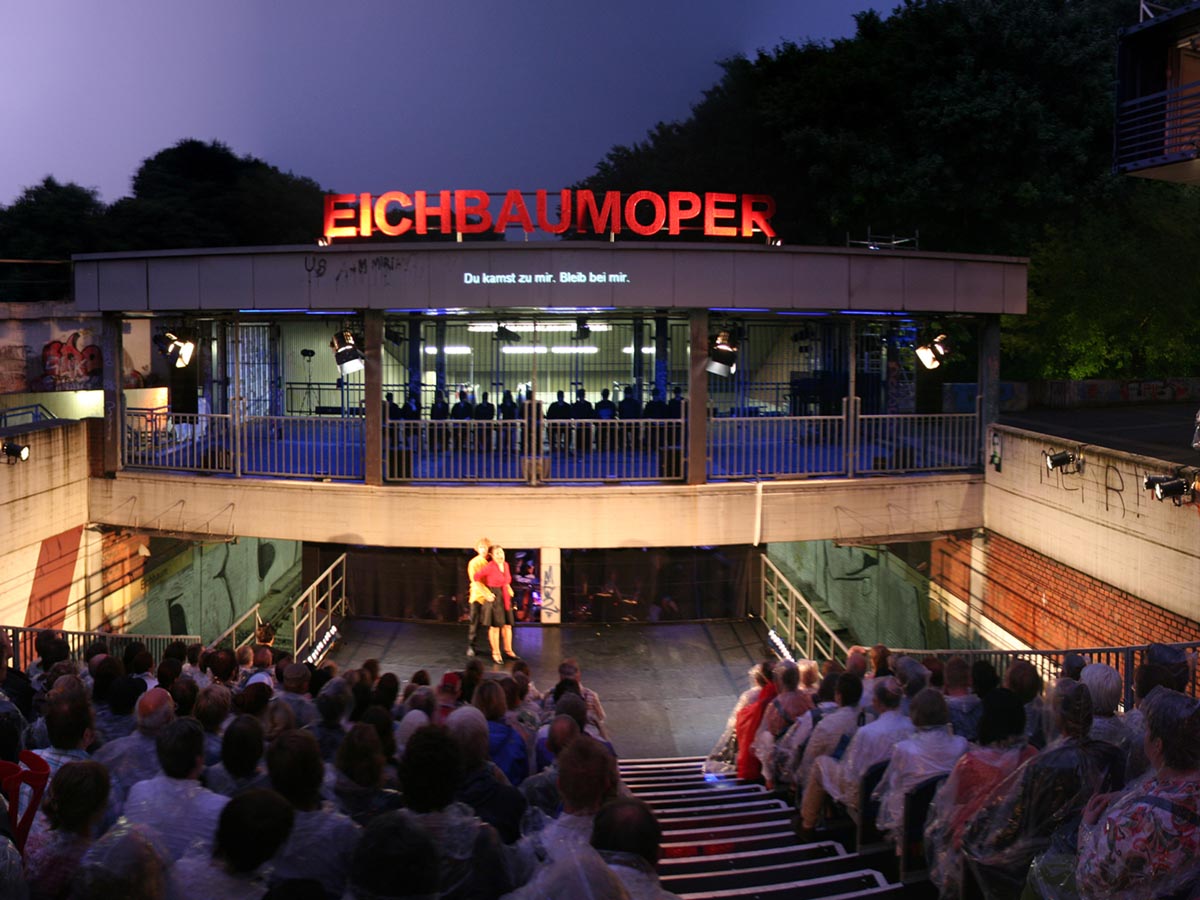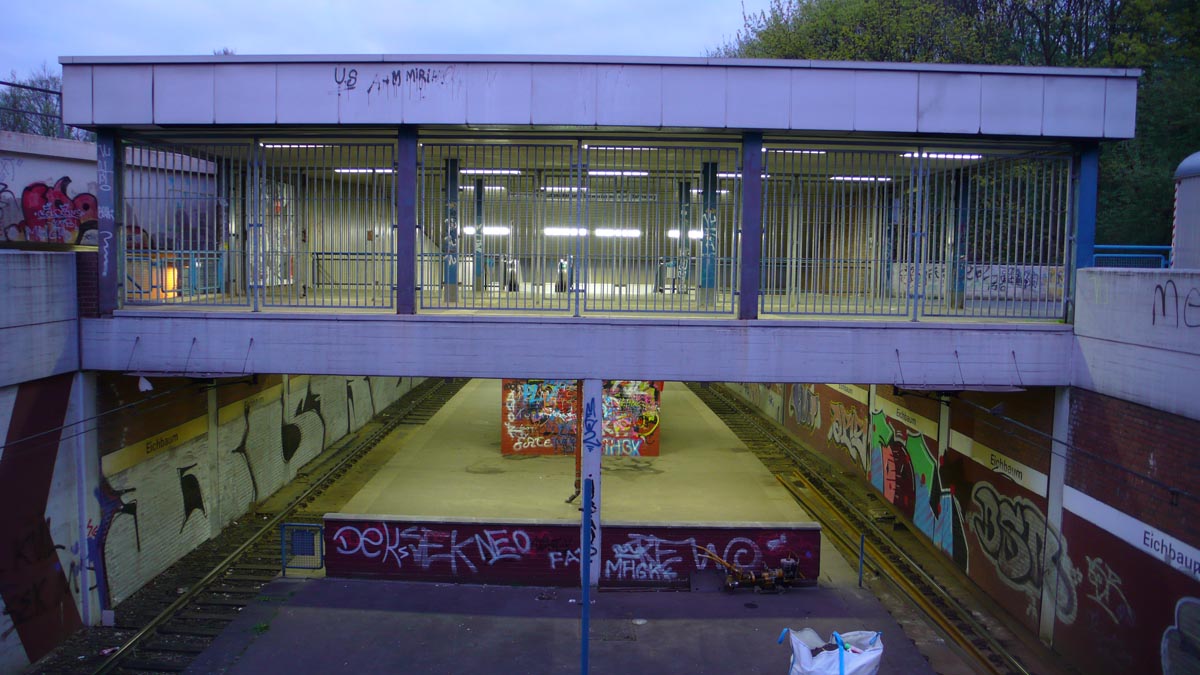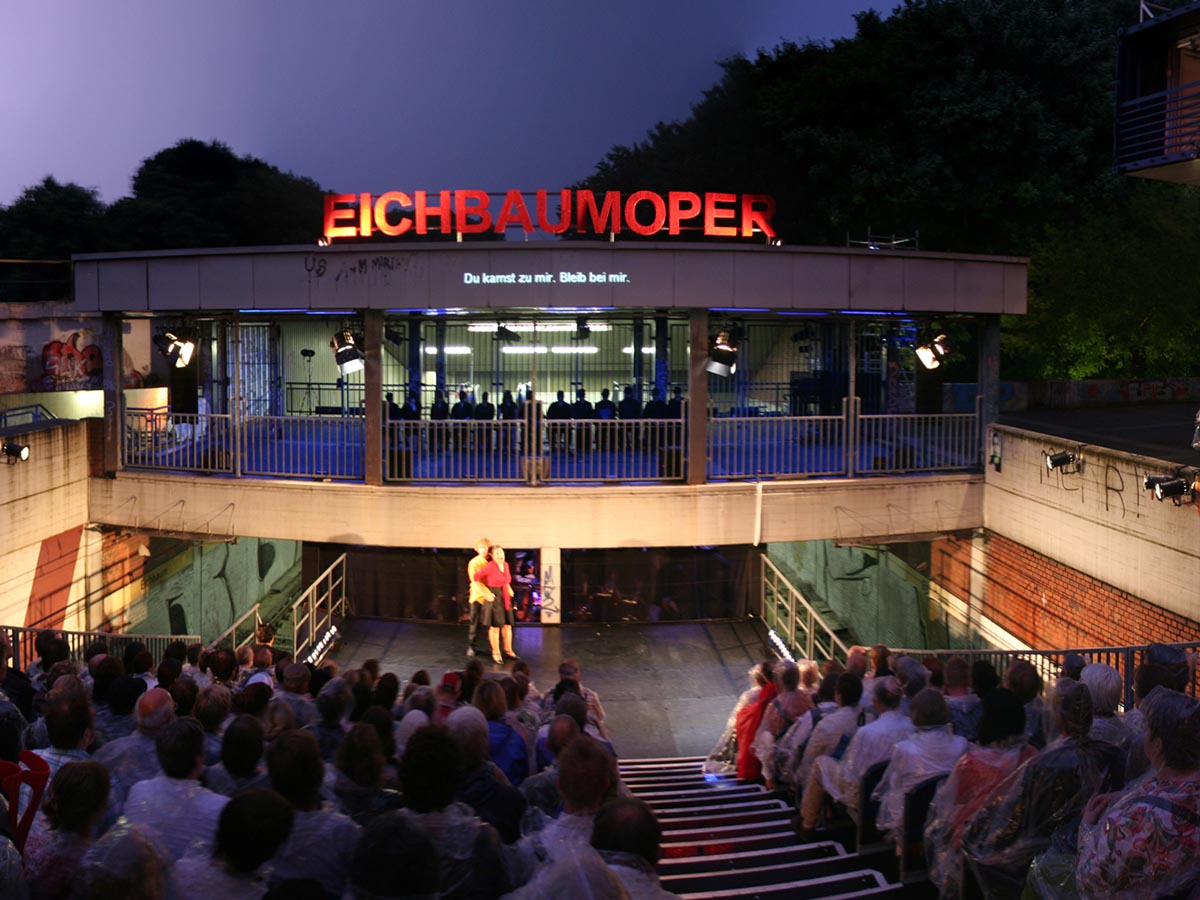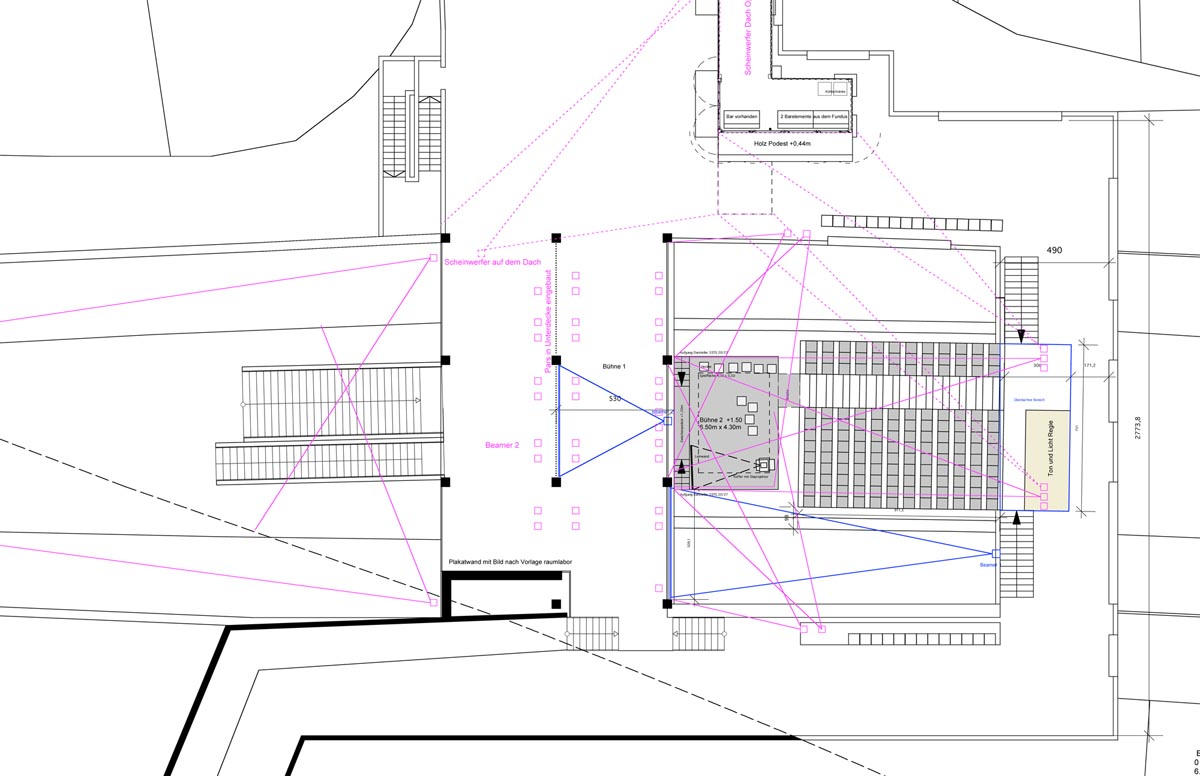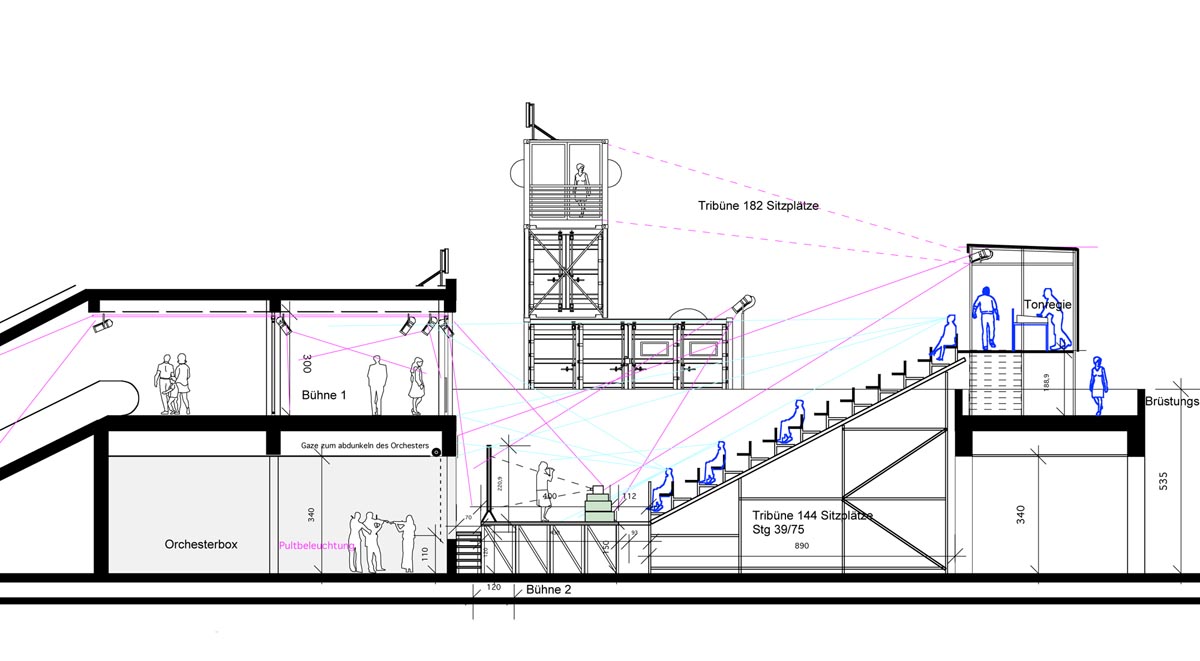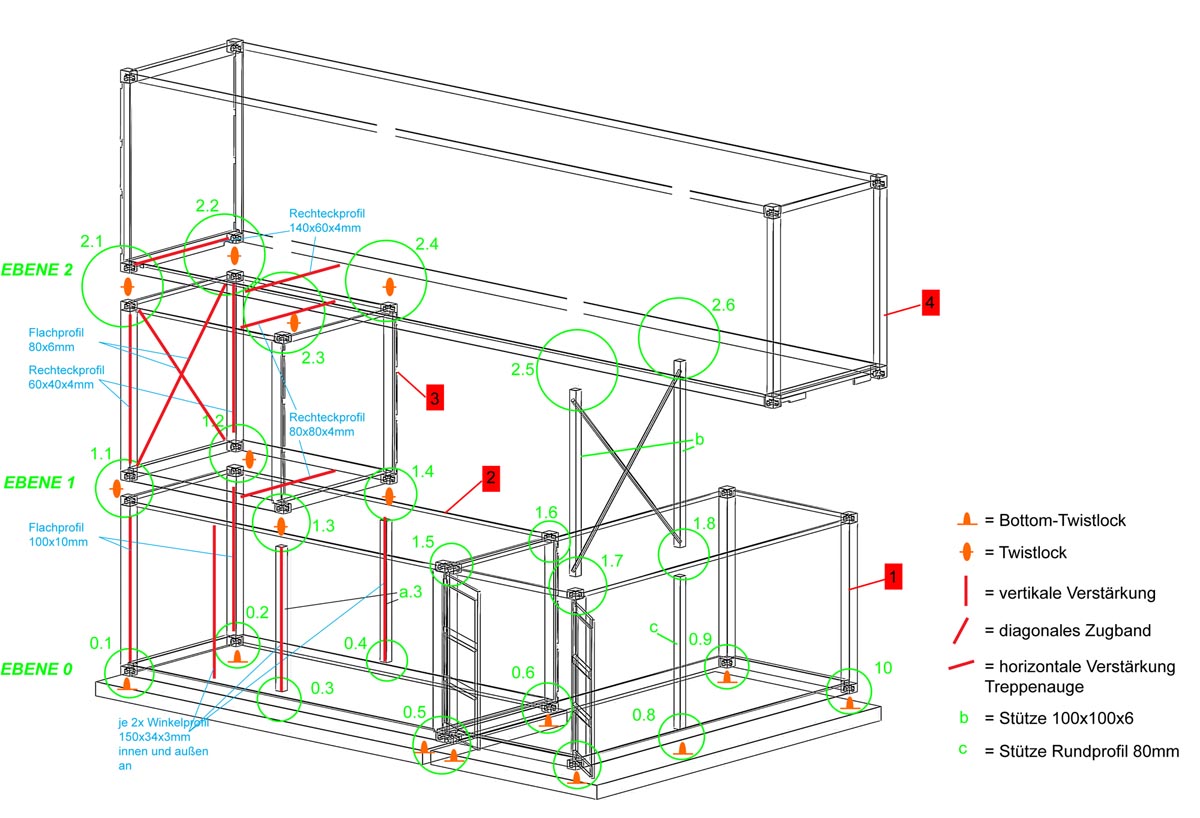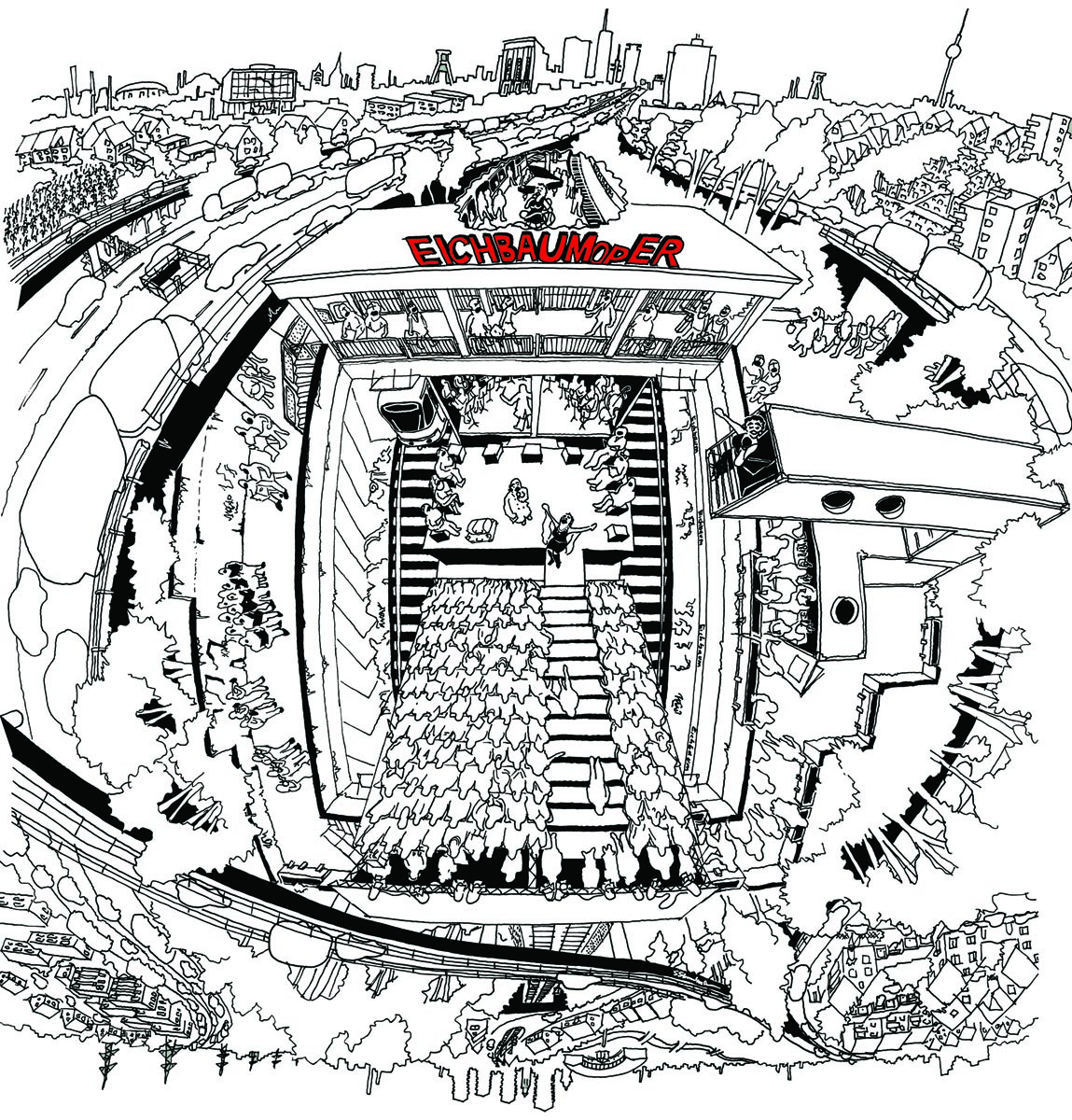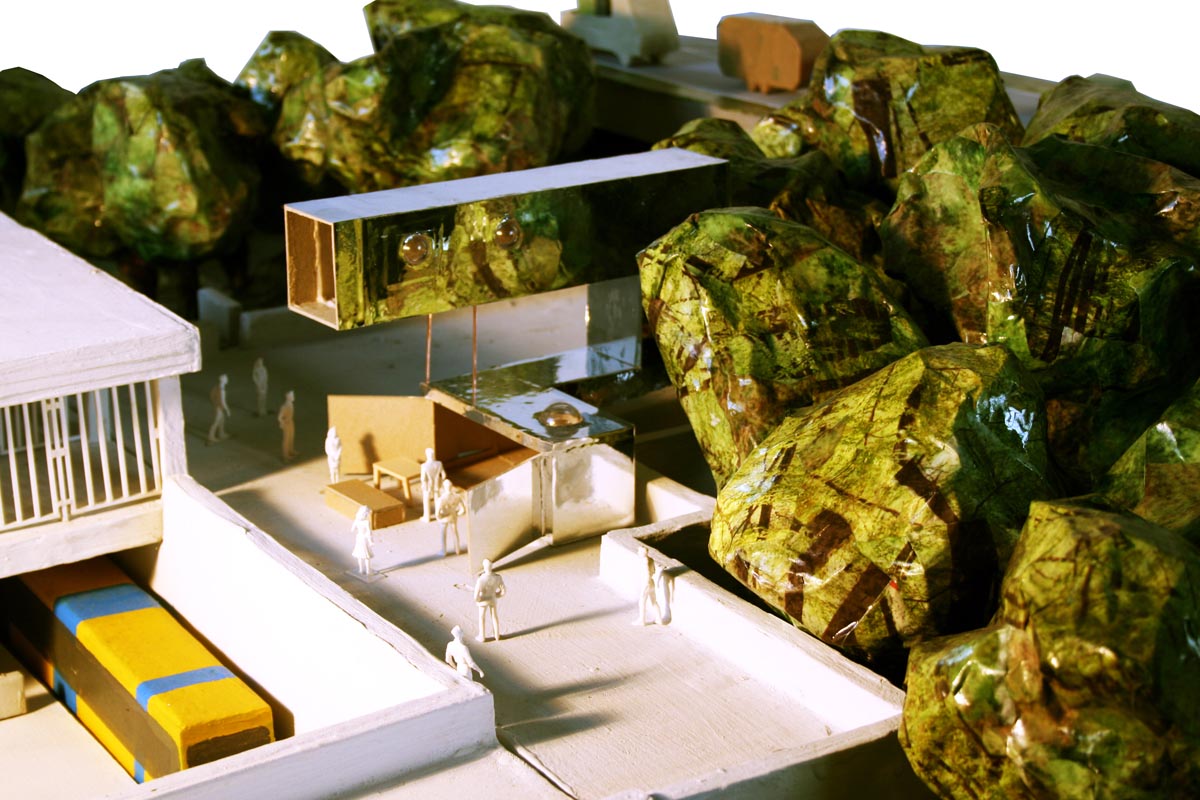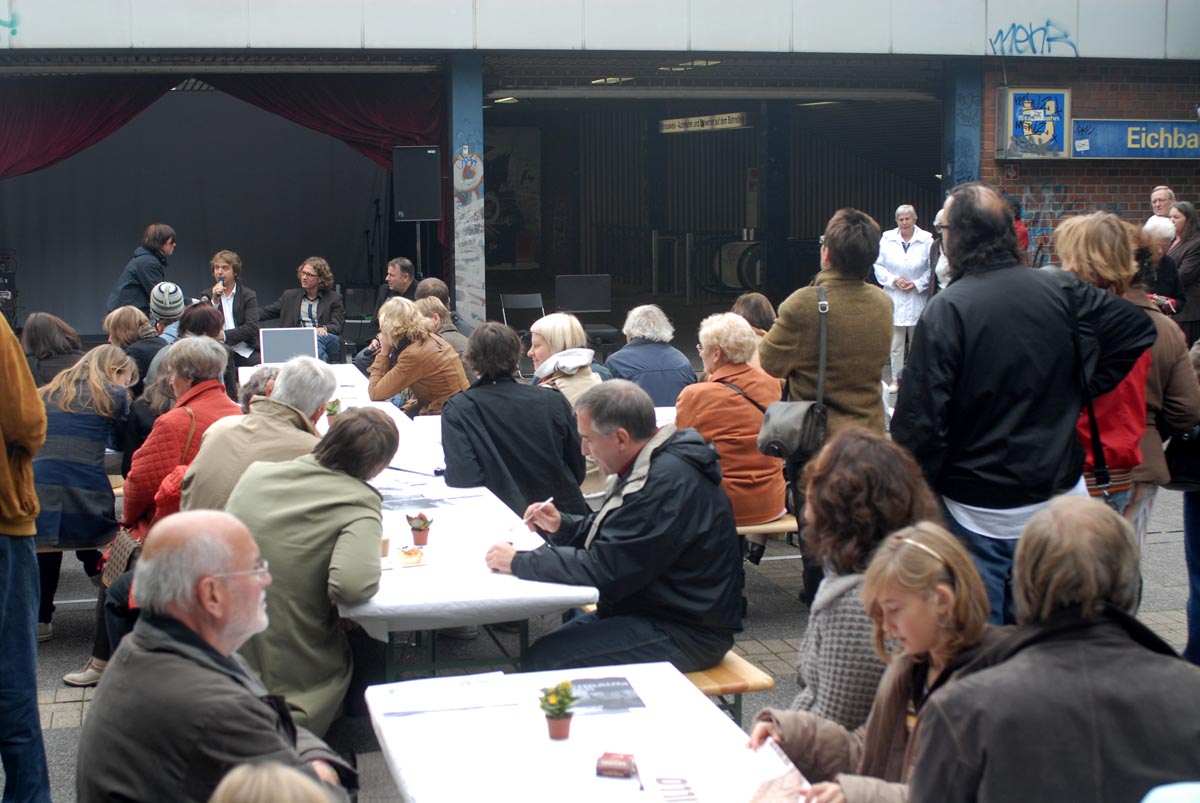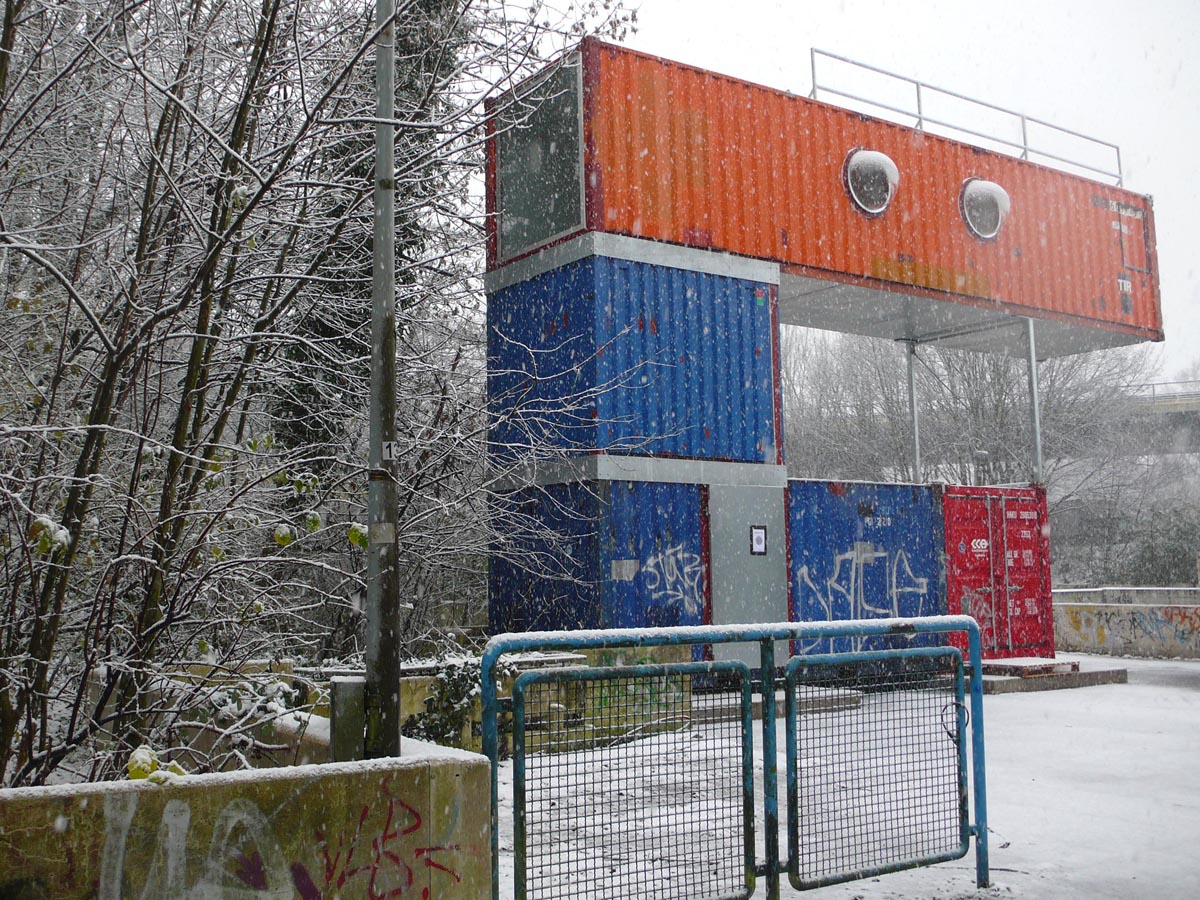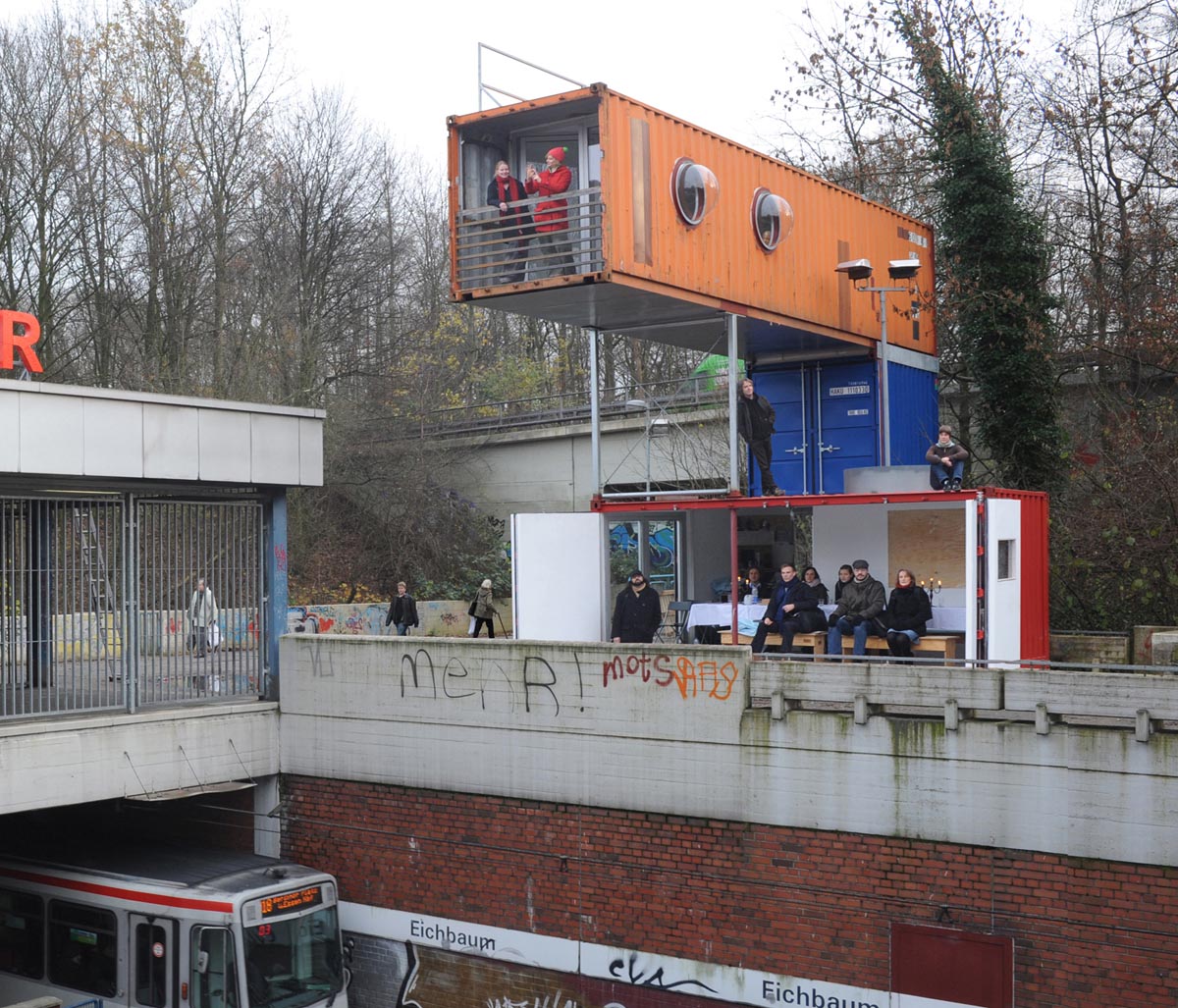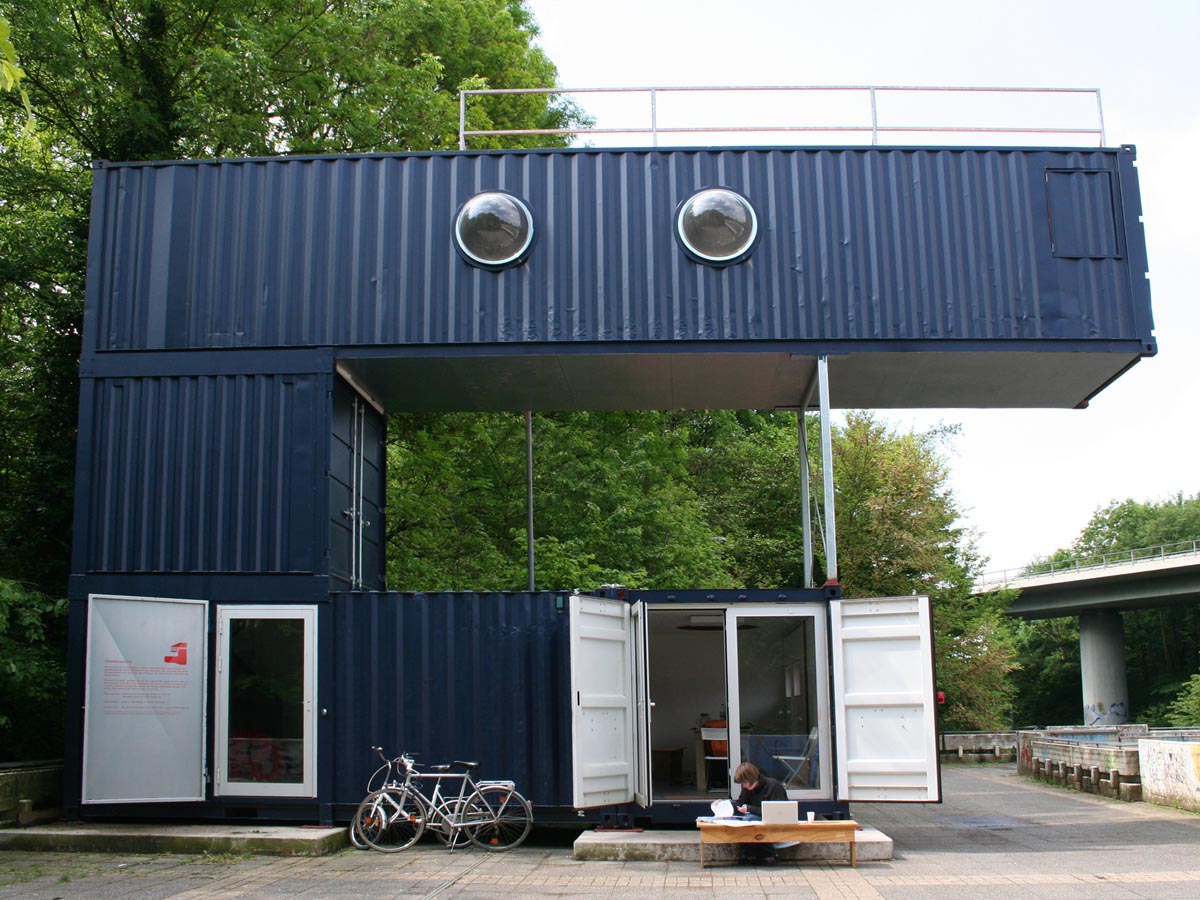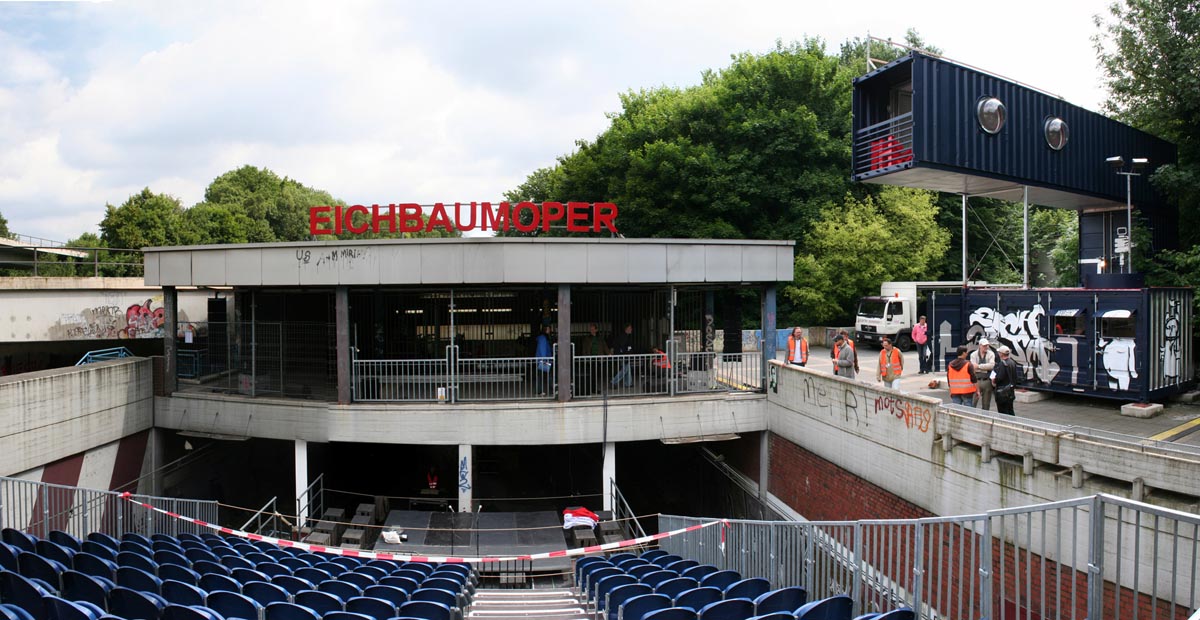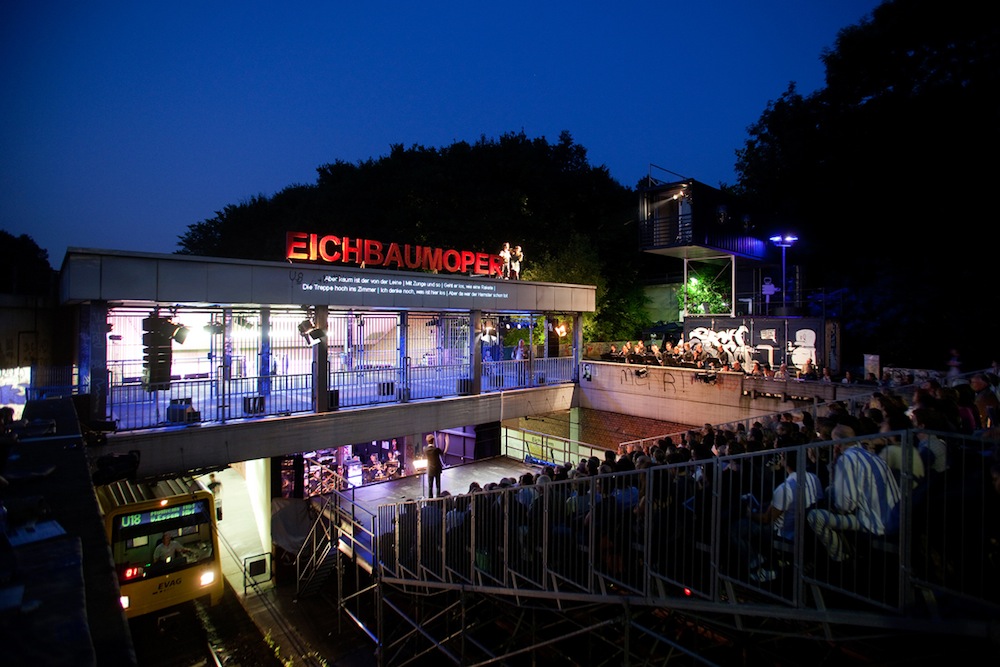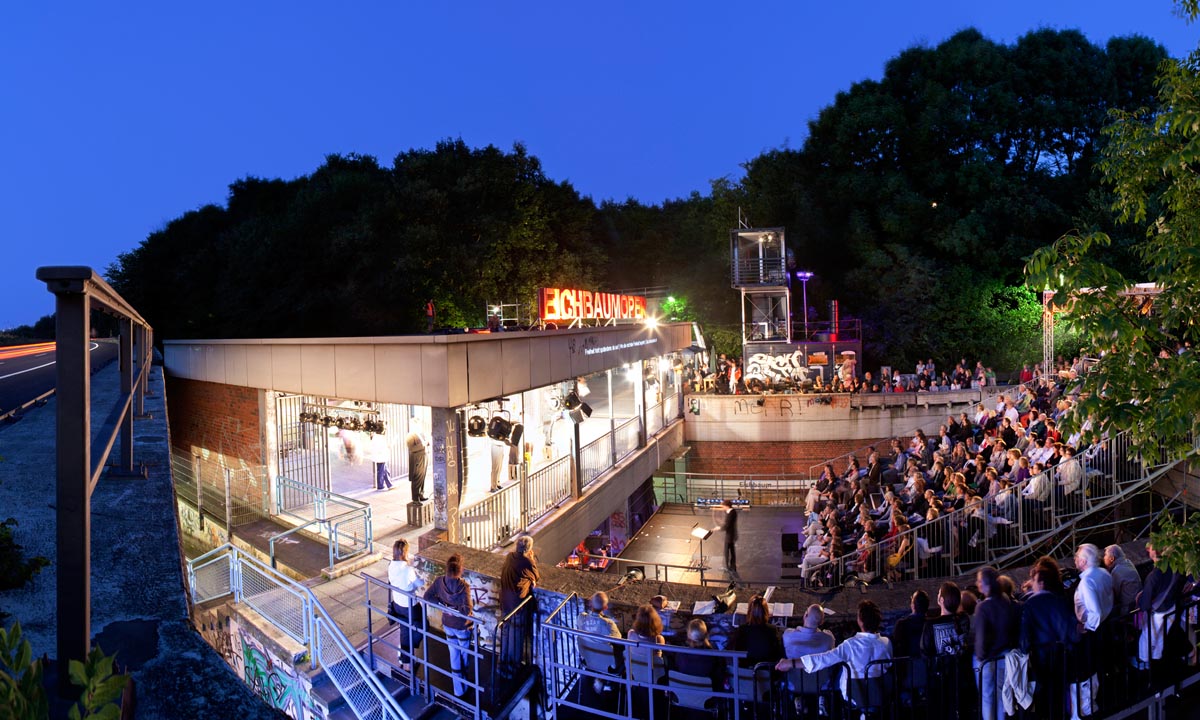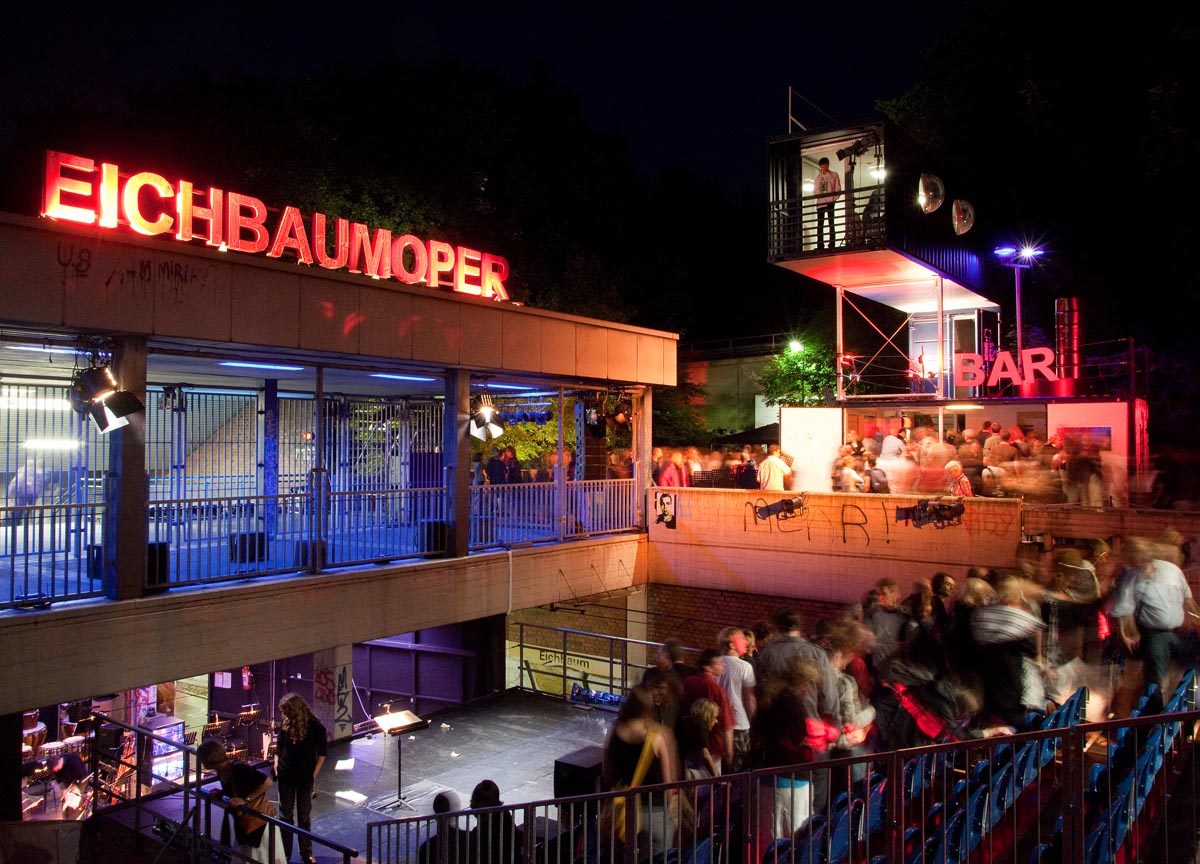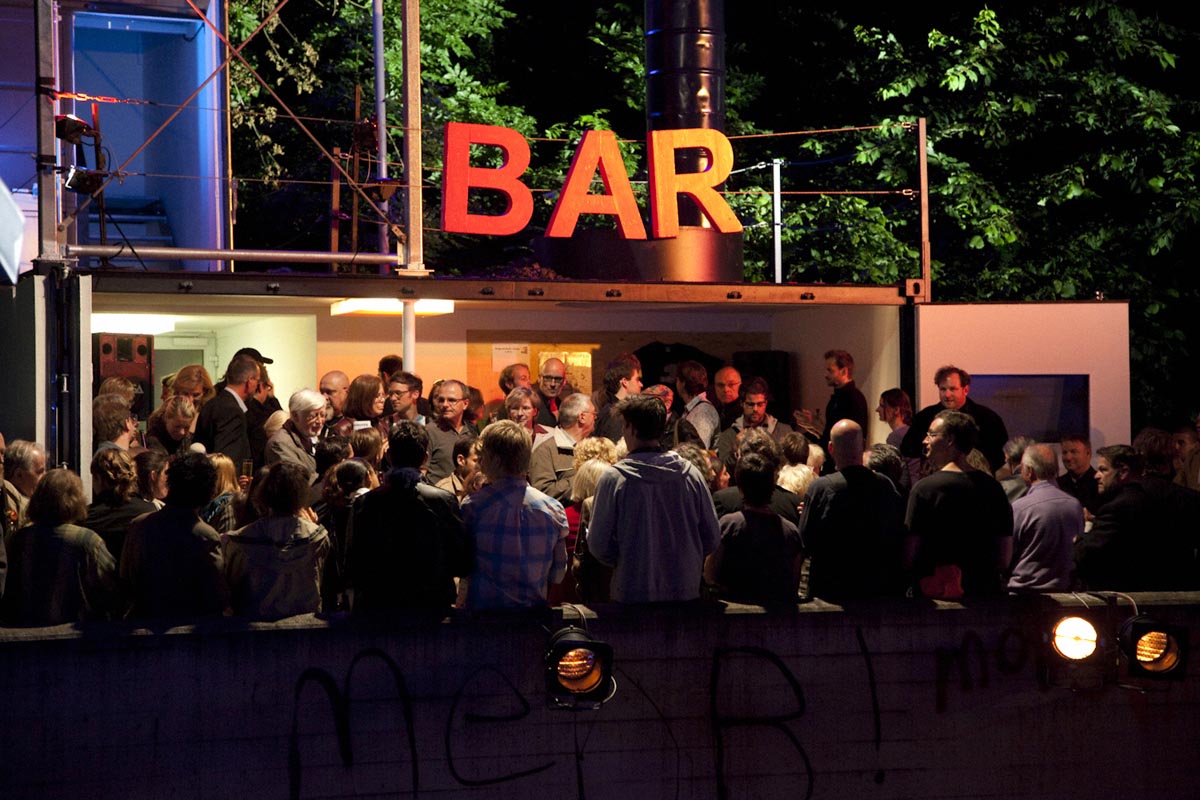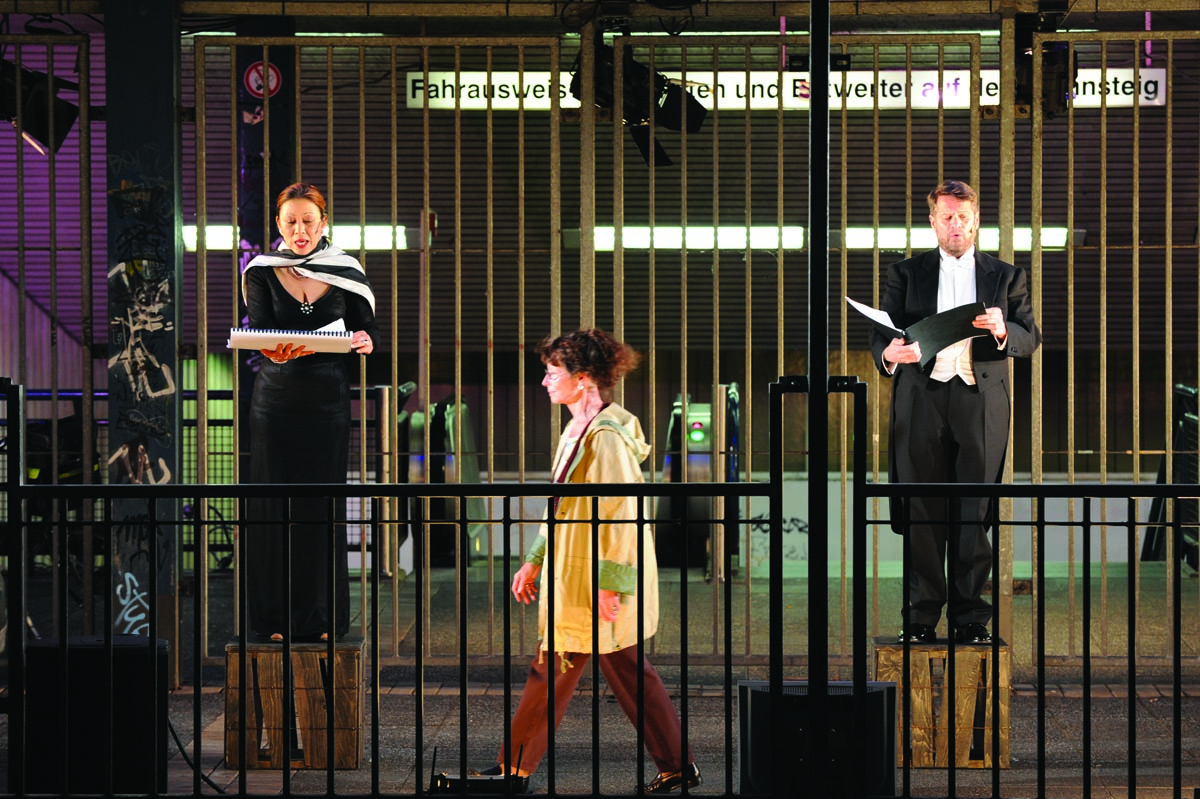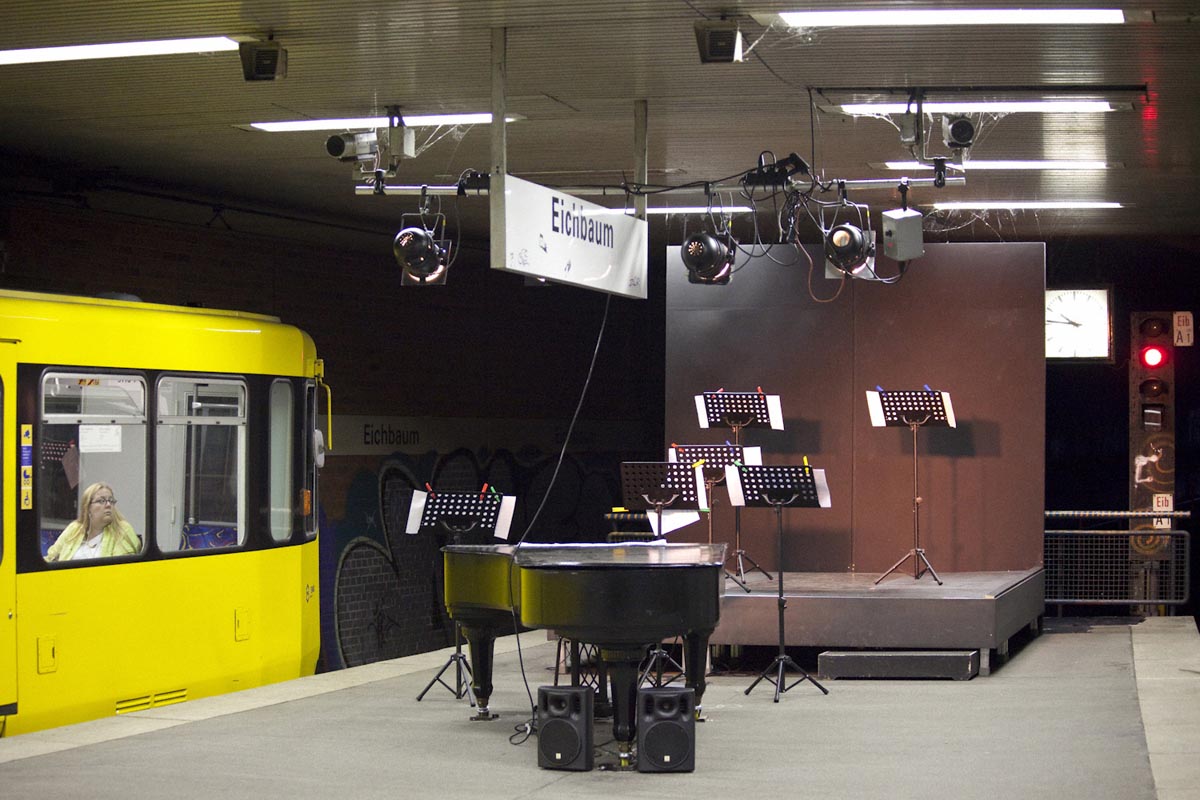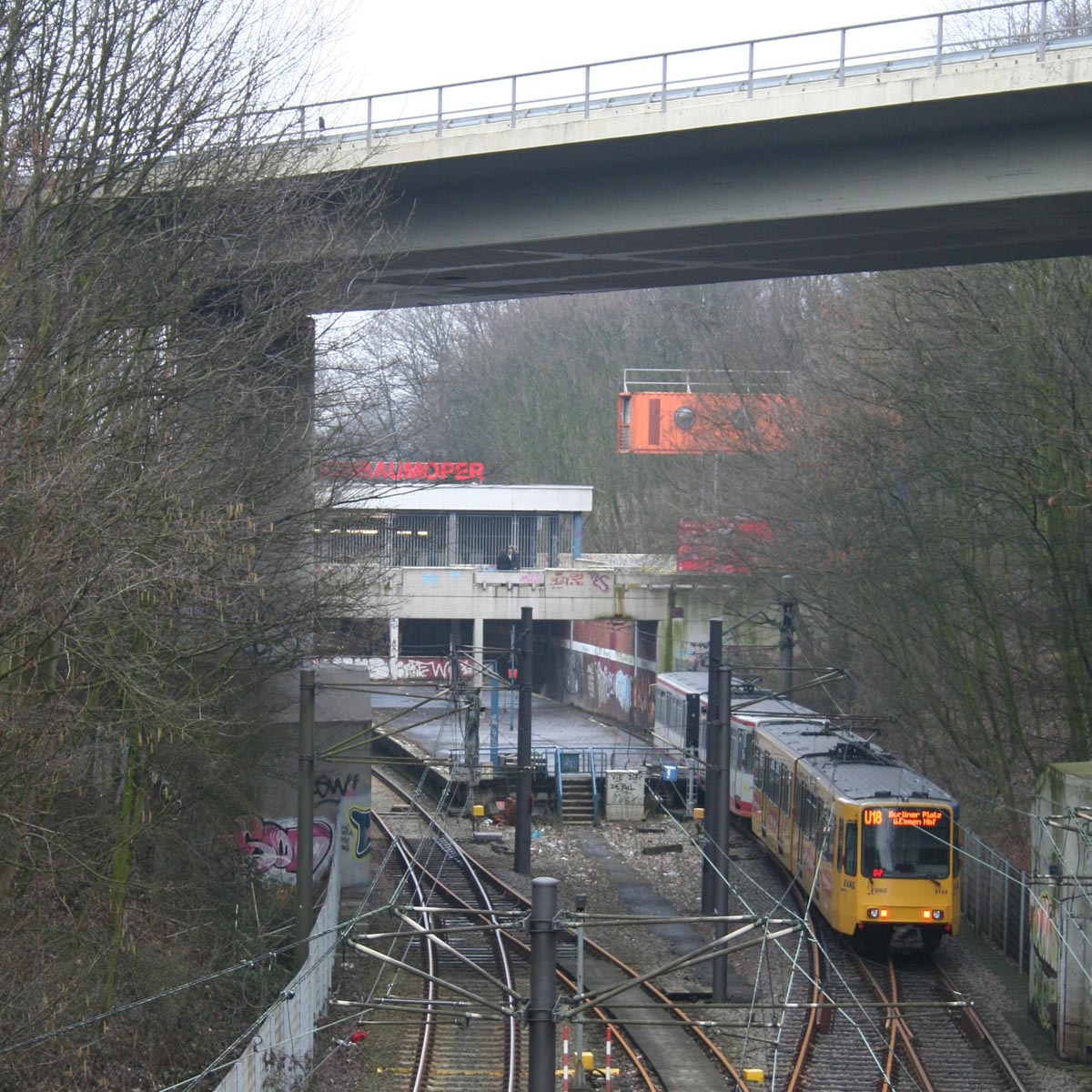Previous state
The Eichbaum station is on the U18 line of the interurban metro system that serves the metropolitan area of the Ruhr. Constructed in the 1970s halfway between the cities of Mülheim and Essen, it is in a setting that is far from urban and defined by an interstitial space in the road junction connecting the A40 and B1 motorways. If this was a symbol of modernity forty years ago, it is presently a target of vandalism and an insecure area that represents a failed model of the dispersed city. Even in daylight hours, the accesses and tunnels leading to the platforms are dark and inhospitable. The local authority in charge of transport has been trying for a long time and in vain to improve security in the station, installing metal railings and video surveillance systems, while also attempting to make it more welcoming by repainting the walls of the passageways when they were covered with graffiti.
Aim of the intervention
At the end of 2006, a group consisting of urban planners and architects devoted to revitalising public spaces that had been neglected by the administration raised the utopian possibility of temporarily converting the Eichbaum station into an opera theatre. The idea was to give it an atypical function that would transform it into a landmark space capable of awakening a feeling of affinity between the regular users and local residents. The initiative managed to achieve the involvement of the main theatres of the region, including the Ringlokschuppen of Mülheim, the Schauspiel of Essen and the Musiktheater im Revier of Gelsenkirchen.
Description
The station’s upper level houses the Opernbauhütte, a pavilion made out of recycled truck containers and conceived as an architectural object with sufficient iconic power to become a symbol of transformation and renovation. In the first year it functioned as a workshop, an experimental laboratory where local residents met with composers, librettists, and technicians in order to give expression to their wishes, their fears and their dreams in musical works that were to be performed in the station itself. This was not so much a question of performing classical operas in an unusual place as proposing a new style of opera that would echo the qualities of the place in which it was conceived and performed. As the idea kept taking shape, the uses of the Opernbauhütte were multiplying so that it became a space for public lectures, an art gallery, a cafeteria-cum-bar and a cinema.
Finally, in the summer of 2009, temporary tiered seating accommodating two hundred people was installed between the railway lines. For two months, the musical works conceived in the Opernbauhütte were performed without concession to the background noise of the motorways, the intermittent racket of the trains and the unwelcoming atmosphere of the station. At the end of this opera season, the pavilion remained in place bearing witness to the extraordinary ephemeral transformation of the station.
Assessment
The run-down state and insecurity of the Eichbaum station are problems inherent to the low-density and thus not very intense urban model. The bleak, insecure nature of the low-density urban fabric arises to a great extent from the scant public presence and the low proportion of ratepayers in relation with the surface area of public land, this considerably limiting capacity for investment in its maintenance. Although, once the model is established, remedying this lack of density is an extremely complex matter, this project demonstrates that it is still possible to resolve the low-intensity problem. The uses and senses of insipid, run-down spaces significantly intensify through the holding of collective events such as the opera season in the Eichbaum station.
David Bravo │ Translation by Julie Wark
[Last update: 29/03/2023]


